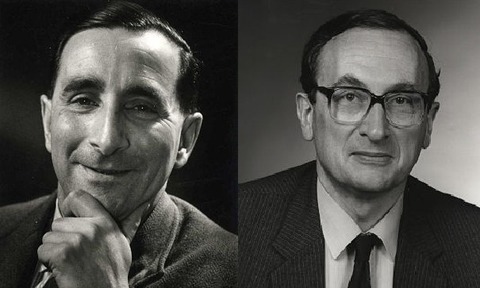
The Wellcome Library is to bring the papers of the pioneers of modern genetics together in one place as part of a ground-breaking digitisation project.
The project, Modern Genetics and its Foundations, will see tens of thousands of first-hand notes, letters, sketches, lectures, photographs and essays, produced by all the key players in the discovery of the structure of DNA and the development of genetics, such as Francis Crick, James D. Watson and Rosalind Franklin, made freely available online.
These vast collections contain both iconic documents and everyday exchanges, complex research notes and personal ephemera and highlight the extraordinarily enmeshed networks of insight and inspiration lying behind pivotal moments of scientific discovery.
The material will be released in phases from this autumn, with the collections from the University of Glasgow available from November 2012.
The material will offer a comprehensive picture of the complex and often fraught relationships between the scientists unlocking the secrets of the structure of DNA, in their own words, and give researchers and curious minds access to the personal and professional thoughts, blind alleys and breakthroughs of the circle of brilliant minds whose ideas transformed our understanding of the matter of life.
The Wellcome Library’s Modern Genetics and its Foundations project is the first phase of a major digitisation programme which will create an integrated online research resource, featuring digitised books, archives, films, photographs and audio covering every aspect of the history of medicine and biomedical science.
Simon Chaplin, Head of the Wellcome Library says: “We are thrilled to be working with five world-class libraries to make these outstanding collections freely available alongside our own holdings. Together, they will offer an unparalleled research resource that documents one of the most significant periods of scientific innovation in human history.”
Lesley Richmond, Deputy Director of the University of Glasgow library and University Archivist added: “This project is an opportunity for the role of University of Glasgow in the development of Modern Genetics to be fully explored. Guido Pontecorvo was the father of genetics at Glasgow and his collection shows that the department that he established was a hub for international genetics research. Researchers will also be delighted to discover that the medical genetics works of Renwick & Ferguson-Smith are to be available online.”

